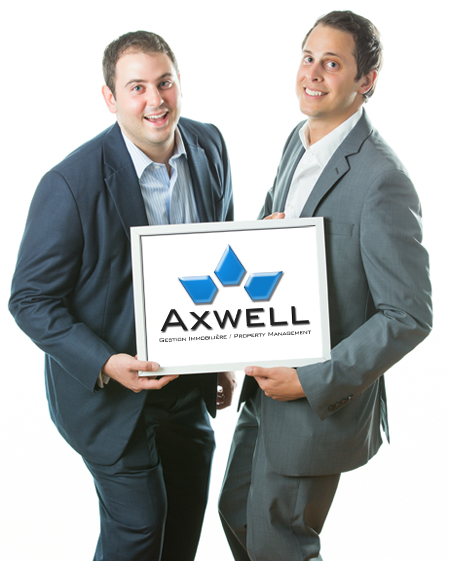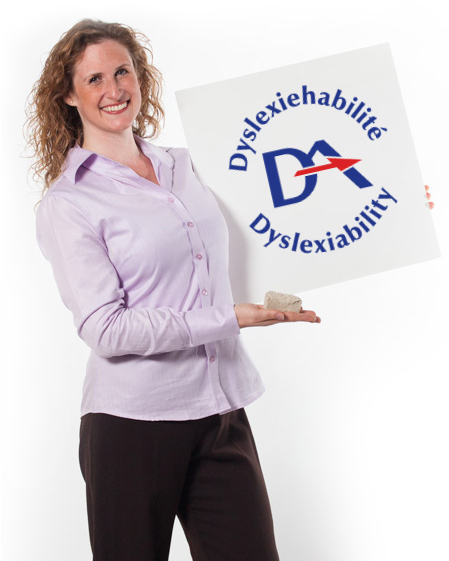|
-

PME Start-ups -

PME Fund -

Business Plan -

Entrepreneur Resources -

Mentorship -

PME Blog -

FAQ -

About Us
|

Axwell Management - www.axwell.ca
Inception: 2016
Jobs Created: 6 full time jobs and a few other part time positions
Business Profile: Axwell is an innovative real estate solutions company that aims to simplify the way business is done and modernize an old industry. We aim to surpass expectations of management service quality, and aren't afraid to get creative when structuring deals.
Their story: It came naturally after seeing the poor quality of service offered in the industry, and how inefficiently real estate management companies are run.
PME Quote: PME gave us access to a wide range of knowledgeable people who excel in their fields and who were able to pass on valuable business advice.

Cat Around Films - www.cataroundfilms.com
Inception: 2016
Jobs Created: 8
Business Profile: Cat Around Films delivers creative film, video, and editing solutions. We channel our love of film and the engagement and input of our clients to exceed expectations at every opportunity.
Their story: The business idea was a coming together or our individual experiences. Mike being from the creative realm and Justin from the technology and business development realm. Together we fused creativity with good technological and business practices to be able to produce a caliber of work on time and on budget... every time.
PME Quote: PME's support allowed us to acquire new and better equipment. Since then we have grown substantially outpacing our expectations. It was also extremely flattering that PME believed in us and put their resources behind us.

Main and Local - www.mainandlocal.com
Mentor: Adam Goldberg, David Horowitz
Inception: 2015
Jobs Created: 5
Business Profile: Main and Local designs and creates unique Souvenirs. Our souvenirs are inspired by places with character and stories to tell.
Their story: Main and Local was inspired by our city, the city of Montreal. We wanted to create products that brought the best (and worst) out of the city. When we started selling them, customers were starting to refer to our items as "souvenirs." Ever since, our motto has been: creating souvenirs... that don't suck!
PME Quote: It meant everything! It not only enabled us financially to continue and grow our business, but gave us an incredible boost of confidence, as well as, access to incredible mentors who have made a real different in our business. We are eternally grateful to PME!

Mentorum Inc. - www.mentorum.co
Inception: 2016
Jobs Created: 4
Business Profile: Mentorum inc. is a Montreal-based health & wellness startup co-founded by Jason Frohlich and Georges Laraque. They are both athletes passionate about health & wellness and have joined forces to develop an application that helps people find the right health & wellness professionals based on their specific needs and location. Find the right health professional for you, book an appointment and go!
Their story: Georges Laraque and I are both athletes passionate about health & wellness. We participate in sports fundraisers ever year to raise funds for social causes across Montreal. From these experiences we've come to realize that people don't always know what their health needs are and which health professionals are best-suited for their needs & objectives (therapy, nutrition, fitness). This realization led us to launch Mentorum. Our vision is to level the playing for health professionals and create a health & wellness ecosystem across North America that will empower consumers to live a healthier lifestyle by eating better, training better and preventing injuries.
PME Quote: We are currently targeting consumer and health professional (B2B2C) markets in Montreal and select cities via social media, public relations, events, strategic partnerships and by leveraging Georges’ star power. The PME funding will help us validate our business model and market and commercialize our product in Montreal in order to build a foundation for Mentorum to scale across Canada and help people live a healthier lifestyle.

Revol Technologies Inc. - www.revols.com
Inception: 2015
Jobs Created: 6
Business Profile: Revols are the world's first Quick custom-fit Bluetooth earphones that mold to the unique shape of your ears in exactly 60 seconds. The entire molding process is controlled by the user, using our companion app on their phone! These revolutionary earphones are designed to provide the perfect fit, delivering unparalleled comfort and sound.
Their story: Navi Cohen had been struggling with regular earphones for what felt like his entire life. They were uncomfortable and did not fit well. In March 2014 he approached his long-time friend, Daniel Blumer with an idea to create custom-fit earphones at a fraction of the cost and time of traditional custom-fit earphones. Over the next two years they worked together to make their vision a reality and in November 2015 Revols launched a Kickstarter campaign and raised over 2.5 Million USD becoming the largest Canadian crowdfunding campaign of all time.
PME Quote: PME was instrumental in our company's success. Even prior to getting the fund they worked with us on optimizing our business plan, raising funds, and creating a team. The fund itself meant the world to us. That money allowed us to get through the majority of the early stage development process without giving up significant equity. It also gave us access to a list of invaluable mentors that we are now grateful to have in our network now.

Hayes Nulman Design - www.hayesnulman.com
Inception: 2014
Jobs Created: 3
Business Profile: Hayes Nulman Design is a unique furniture design and fabrication studio in Montreal. It is unique because we build custom functional works of art by blending wood and metal in seamless design. We work well with clients who know exactly what they want. We also work well with clients who know the functions they need, but are unsure of the rest. In other words, we work well.
We have a firm belief that every element of every one of our products must serve a function. Our wood components are built using traditional joinery techniques, and are either reclaimed or sustainably-harvested lumber. Our metals are steel, stainless steel or aluminum; precision TIG welding of them leaves elegant welds which can be left as-is or polished. Unlike mass-produced counterparts which end up in landfills, our hand-made pieces are built to age gracefully.
His story: From a young age Hayes was fascinated with the construction of everyday objects. After finishing school in Furniture design and fabrication he tried to fit in at a large manufacturing company. Fortunately for us it was like trying to fit a square peg in a round hole. This led him to unleash his entrepreneurial spirit by establishing Hayes Nulman Design.
PME Quote: The money we received from PME has enabled us to purchase state of the art equipment that will push us to enter new product segments.

For The Love Of Dog - www.fortheloveofdogmontreal.ca
Inception: 2013
Jobs Created: 2 full-time and many seasonal employees
Business Profile: We provide quality pet grooming, straight to your door! We also provide safe overnight boarding for your dogs, in a home environment, which allows dogs to be a part of the family rather than just another dog in a kennel.
Her story: When I was going through nursing school, I wanted nothing but a dog to call my own. Once I adopted Maya from the SPCA, I realized that leaving her home alone all day was not fair. Here I was stuck between leaving my precious Maya home all day alone, or hiring a dog walker, a stranger who now would have access to my home and personal life. Montreal definitely needed a reliable pet service and I was going to bring it to them!
PME Quote: I was so lucky to have been given a 15k cheque from PME. This helped me with marketing and, essentially, cash flow! After over a year in business, I still have money to continue to grow my business, and I am so grateful for their amazing support. Getting this money proved to me that my community was there for me, and wanted to see me succeed. Even when others didn’t believe in my service, PME did!

DogSync - dogsync.com
Inception: 2014
Jobs Created: 7
Business Profile: DogSync builds digital tools to help dog owners track their dog's care and communicate with other caregivers (family, couples, roommates), while recommending curated dog products based on app your dog's info and care habits.
Their story: Taking care of a dog is a lot of work. I learned that firsthand when my family brought home Winston. We thought it would be easy to look after him because we were 6 people and could split up the tasks. We soon learned that communicating about all the things you need to do for the dog between multiple busy people was so tough that instead of it being easier, we ended up with pee on the floor and a lot of frustration. In the pursuit of an easy and fast way to communicate and stay consistent with Winston's care we built DogSync.
PME Quote: Getting funded by the PME was a bit surreal. It meant so much to the team and I to see that kind of recognition for the hard word we have been doing. It made us feel further validated and has given us a heavy dose of motivation.
PME has also really helped us articulate and structure our business more effectively. In doing this we have been able to find holes in our model and fill them one by one with proper guidance.

Medialpha - www.medialpha.ca
Inception: 2014
Jobs Created: 2
Business Profile: Medialpha manages an online platform that connects rising demand for home health services to a network of mobile health professionals. Medialpha offers patients the maximum control over their schedule; our professionals perform medical/paramedical acts whenever and wherever patients request them. Medialpha’s mission is to make everyone win in healthcare by providing great customer experience to patients, clinics and other partners.
Their story: Today, the healthcare system faces multiple challenges such as timely and convenient access to medical services. We recognize that personal time is precious for patients and that many health services can be performed outside of hospitals and clinics. We saw this as a great opportunity to improve current situation. Jean-Pierre is a skilled health administrator with a great knowledge of current challenges, and Marina has an extensive technical and managerial background, and a passion for healthcare management. Together, they created Medialpha to bring healthcare to patients’ homes while implementing world’s best practices in patient experience.
PME Quote: Before our pitch, we were nervous and humbled to present to such distinguished and accomplished panel members. It was such a thrill to receive their endorsement in terms of start-up funds and precious mentorship. Thanks to PME we are better equipped to launch our operations.

CoolWhey - www.coolwhey.com
Mentor: Jeremy Richman
Inception: 2015
Jobs Created: 4
Business Profile: CoolWhey is North-America’s first protein ice cream. Each tub contains 23g of protein, is 100% natural and has no added sugar. Our ice cream can be used as a post-workout recovery or simply as a healthy snack!
Their story: Konstantinos Vassiliou and Benjamin Outmezguine have been friends for many years. They’ve known each other since high school and have always shared a passion for entrepreneurship. One of their most memorable experiences together takes place at the Young Entrepreneurs program from Junior Achievement in 2011. Together they participated in the development of a product, its creation and its selling as well. This planted the entrepreneurial seed of one day starting their own company. Noah Bernett met Kosta and Ben in CEGEP, and it wasn’t long before they realized that they all shared the same goals and passion for business. The three young men shared much more than just business, they also shared a similar life style of being active and having a love for sports. This led them to spending time together working out and participating in the same sports. Together they signed up for classes in martial arts, they went skiing during the winter and played soccer during the summer. These activities led to the creation of their business, CoolWhey.
PME Quote: PME provided us with everything we needed as a starting company; a great mentorship program, an interesting source of financing, and real support from the community.

N/A - www.naisgood.com
Inception: 2012
Jobs Created: 12
Business Profile: N/A is a new kind of marketing agency with a singular goal: to connect people and brands in ways that affect positive social change. We call it Good Marketing.
Their story: Working at Saatchi & Saatchi, Sid Lee, Vice Magazine, and V Magazine in cities ranging from Montreal to New York, we decided it was time to use our editorial and marketing expertise to put purpose at the core of business.
PME Quote: The PME gave us one of our key big breaks early on. With their investment, we were able to grow in a smart way, and today - only 2.5 years in - count 3 multi-billion dollar companies in the US and Canada as clients. We couldn’t have gotten to where we are today without the PME.

CoPower Inc. - https://copower.me/
Inception: 2013
Jobs Created: 14
Business Profile: CoPower is an online platform that allows Canadians to pool their money and invest in pre-vetted clean energy opportunities such as solar and energy efficiency systems. Investors receive solid financial returns, and make a positive impact on the environment and in their communities.
Their story: David is a lifelong environmentalist who worked in Toronto and New York City on mobilizing communities towards clean energy and generating local power. Raphael worked in science and technology for many years, developing an appreciation for new energy technologies and for the power of the Internet. The two of them met at a Montreal-based clean energy investment fund, where they grew to understand the barriers the traditional banking system places in front of financially-viable clean energy investments.
PME Quote: The support of the PME was about much more than money: it meant we had a rockstar group of entrepreneurs supporting us. From the CEO of a global clean energy company, to the founder of a successful research and marketing firm, to experienced lawyers and accountants, we have found ProMontreal Entrepreneurs to be one of the most valuable resources behind our company.

Senseez Pillows - www.senseez.com
Inception: 2013
Jobs Created: 3
Business Profile: These colorful, lightweight, fun-shaped vinyl vibrating cushions offer a gentle sensation they are squeezed or sat on, relaxing, calming or soothing the body. This can help some kids sit still and others fall asleep! Kids that have trouble sitting for meals, stories, car rides, shopping trips, school work, movies, or anything else will be comforted by the vibrations of Senseez.
Their story: Senseez was created when my son was 2 years old and diagnosed with a special need. One of his difficulties was sitting in one place long enough to eat his meal, read a story, or sit for circle time. I spoke to an occupational therapist who recommended a vibrating mat to help with this. I bought one for my son, and he instantly loved the sensations! But one day, I wanted to take him to our local library for storytelling, and thought the mat would help, except it was large, black, heavy, and had to be plugged in. I was also concerned about my son looking different or standing out with a large mat. I went on a search to find a small, lightweight, portable pillow that would offer the same sensations that he could take with him. I couldn’t find one! The original prototypes were sewn in the basement of our home, and Senseez was born!
PME Quote: PME has been a tremendous support for us… not only in the financial area, but also in helping us to access a number of resources we would have not known about without their help!

Cuttle Pharmaceutical - www.cuttlepharma.com
Community Partners: PME, CDEC CDN/NDG, Montreal Inc., Concours Québecois en entrepreneuriat, Concours d’Entrepreneurship HEC-Poly-UdeM
Inception: 2015
Jobs Created: 2
Business Profile: Cuttle Pharmaceutical is a Montreal-based Contract Research Organization (CRO) dedicated to producing high-quality test drugs and other fine chemicals. The goal of our drug development services is to provide our clients with top quality products tailored to their research requirements, effectively reducing costs and timelines and helping to meet drug discovery milestones.
Their Story: Our business was initially started to help reduce domestic drug shortages by supplying active pharmaceutical ingredients for small volume prescription medications that were subject to shortages. Following regulatory changes at Health Canada, we pivoted to our current activity, contract pharmaceutical research, which is a rapidly growing market owing to a trend towards outsourcing research activities in the pharmaceutical sector.
PME Quote: The PME fund was instrumental in allowing us to meet our short-term needs while promoting our services, and it allowed us to buy materials to fulfill our first contracts and generate positive cash flow.

The Tendler Group - www.tendlergroup.com
Inception: 2001
Jobs Created: 12+
Business Profile: The Tendler Group is a provider of medical market research to leading pharmaceutical companies.
Her story: I always had an entrepreneurial spirit. I worked for 2 competing global agencies prior to starting my own.
PME Quote: To receive funding from such a distinguished committee was support within itself.

Dylan Ribkoff - www.dylanribkoff.com
Inception: 2011
Jobs Created: 10
Business Profile: To create clothing that satisfies our customer needs. To provide a shopping experience that makes people want to share it with others.
His story: I was dissatisfied with what was available; I was essentially making something for me.
PME Quote: The PME fund meant life. It was a breath, without that breath you can't think.

Praktice Health - www.prakticehealth.com
Mentor: Earl Azimov
Inception: 2014
Jobs Created: 3
Business Profile: Gymbirds is pay-as-you-go fitness app that puts the entire menu of fitness classes available in your city at your fingertips. The app make it easy to discover the classes and gyms around you, get an affordable pass, and get going in seconds. No more lengthy signups, costly commitments or boredom at the gym!
Their Story: Montrealer Michael Moszberg was studying abroad and in the market for a gym, but didn’t want to make the commitment to a membership. He simply wanted to pay as he went and be able to go to the one that was most convenient at the time, but avoid the hassle of researching all of their drop-in rates and conditions. When Moszberg came back to Montreal, he realized that many people here were in a similar spot: They wanted the convenience of a membership, but not the commitment. Moszberg and his business partners Damien Galan and Tarek Riman started working on the idea that would become Gymbirds.com at the Google start-up event in February, and won McGill’s Dobson Cup, the university’s flagship startup competition in June. They won the CBC Media Pitch Prize at the International Startup Festival in July and were selected for a Jeune Promoteur award by Development Economique West Island in November before being selected by PME in December.
PME Quote: PME has provided us with the resources we needed to build our sales and marketing team, enabling Gymbirds to expand into new markets. They have also helped enormously by providing mentorship and making important introductions for us.

Arayuma / Sahana Ayurvedic Products, Inc - www.arayuma.com
Mentor: Renato Perpignani
Inception: 2007
Jobs Created : 5
The purchasing power we gained early on from receiving the PME loan was instrumental in the viability and success of our business
Business Profile : Sahana Ayurvedic Products, Inc. is a Montreal-based family business operating as a wholesaler of organic and Fair Trade food products in the Canadian health food sector. Under the brand name Arayuma, Sahana supplies premium quality spices, coconut milk and coconut water to Canadian health food, specialty and grocery stores. Arayuma spices and coconut products are entirely sourced from small-scale organic growers in Sri Lanka and India operating within the Fair Trade system.
Their Story : Chanaka and I wanted to start up a business together since meeting in Japan 10 years ago. After relocating to my hometown of Montreal, Arayuma was born out of the synergy of our individual and common strengths and interests. My background in nutrition and knowledge of Ayurveda, along with Chanaka's familiarity with the Sri Lankan business world and Fair Trade producer network there, were key factors in the planning and creation of our business.

Armorex - www.armorex.ca
Inception: May 25, 2009
Jobs Created: 4
Business Profile: Design and manufacturing of custom-made kitchen and bathroom cabinets, office cabinetry, built-in closets.
His Story: Cabinet-maker by passion & profession, I realized my dream to create beautiful, functional, durable high quality kitchen cabinetry in all styles tailored to satisfy any sophisticated taste in respect to any budget.
PME Quote: PME has helped to triple my sales within a 3 years span by offering a low interest loan used to upgrade the existing equipment and purchase new industrial grade equipment to increase the manufacturing capacity from 2 to 6 kitchens per week.

Dyslexiability Inc./Dyslexiehabilité Inc. - www.dyslexiability.com
Inception: January 2005
Jobs Created: 7
Business Profile: Dyslexiability deals with the root cause of dyslexia and not just the symptoms. We focus on helping people who have various types of difficulties in reading, writing, comprehension, math, spatial awareness, attention deficits, and hyperactivity use their natural gifts and talents to experience success!
Her story: I am dyslexic and dyscalculic with a BA from McGill University and an MSc for Surrey University in the UK. After years of difficulties and trying everything my parents and I could find, someone gave my father the book The Gift of Dyslexia. I read it and realized that I wasn’t weird: I was just like the other dyslexics - I just hadn’t met any. After completing the program in Waterloo, Ontario, I realized the impact it had on my life. At the time, the Davis Method was not offered in French anywhere in North America, and had not yet been introduced to Quebec. I was the first certified and licensed Davis facilitator in Quebec as of 2004. By putting a positive spin on an old concept, I created the term ‘dyslexiabilities’ to reinforce all the positive aspects that can come from using the right tools. With a positive outlook, the possibility of a bright future is greater than ever.
PME Quote: After living in London, England to return to Montreal, PME made it possible for me to stay in this great city, put down roots, and help many people over the years. By founding Dyslexiability Inc. in Montreal, I have been able help many people struggling with learning differences to achieve success.

Biocycle Oils Inc. - www.biocycleoils.com
Inception: June, 2008
Jobs Created: 10
Business Profile: Biocycle Oils is a green generation company that believes in a sustainable future which is obtained by using innovative methods and environmentally friendly technologies that give a second life to waste cooking oils and fats. Driven by the desire to give much more for much less, we offer exclusive service, refined support and cater to our client’s needs whether they operate a restaurant, food chain, shopping mall, or food processors throughout Quebec. We are the specialists in the recuperation and rendering of used cooking oil, and animal fats and various related services such as grease trap sanitation.
Their Story: Growing up in families of entrepreneurs, it was clear to us from high school that we were going to start and operate one or numerous businesses. However, we wanted to do something more than simply generate a return for shareholders and officers, we wanted to make a difference, to leave this planet in a better state than when we got here. The recycling industry is going through a booming stage both on a macro and micro levels; fuelled by environmentalist, government action and good corporate citizen involvement, it seemed like the perfect industry for us.
PME Quote: It turned our stack of papers (business plan) and ideas into a fully operating business.

Eye-In Media - www.eyeinmedia.com
Inception: 2003
Jobs Created: 17
Business Profile: Eye-In Media is a marketing and technology company that specializes in Digital Signage and Wi-Fi Network management. We develop and manage cutting-edge multi-media solutions such as Digital Menuboards, Video Walls and Wi-Fi Hoptspots. We enable marketers to broadcast dynamic content across unlimited locations on mounted screens or on mobile devices, which engage customers, turning shoppers into buyers.
Their Story: We wanted to create something new and different based on the latest emerging technologies that would deliver value to customers.
PME Quote: Passing the business plan interview and being approved by the PME committee which was made up of prominent and seasoned business professionals from our community gave us the confidence that we were on the right track to success.

ClickMyRestaurant - www.clickmyrestaurant.com
Inception: Founded in November 2012
Jobs Created: 4
Business Profile: ClickMyRestaurant provides every restaurant with their own website featuring the online ordering within a couple of hours. Have a website and no online ordering? We can add the online ordering to restaurants that already have a website, while keeping it consistent with the website’s look. Restaurants don’t need Internet or any special set up to receive online orders; they can start receiving online orders as an automatic phone call.
His story: After working with pizzerias in Montreal for 5 years in online marketing, Rodolfo realized there was a market opportunity for all restaurants to have this set-up.
PME Quote: Receiving the 50k loan from PME will propel my business and will allow me to sign more restaurants and take my business to the next level.

The UPS Store 358 - www.theupsstore.ca/358
Inception: November 2007
Jobs Created: 3-4
Business Profile: The UPS Store provides packing, shipping, printing, and business services needs. Our location offers full service printing: anything from presentations and business cards, to banners and posters and training manuals.
Her story: A friend of mine wanted to open a The UPS Store and asked me to be a partner. For personal reasons this person had to move away just before we opened the store so I became the sole owner!
PME Quote: Funding from PME allowed me to open my store with more peace of mind and more chances for success!

The MindSpace Clinic - www.mindspaceclinic.com/
Inception: April 2011
Jobs Created: 3
Business Profile: MindSpace is a psychology clinic offering therapy and mindfulness training to individuals of all ages. MindSpace therapists and coaches are dedicated to providing the most up-to-date, evidence-based tools for reducing stress and anxiety, lifting mood, improving performance, and promoting overall health and well-being.
His story: As someone with a long-standing meditation practice, I’ve always believed in the power of Mindfulness for managing stress, staying focused, and cultivating a rich and meaningful life. I’m also a psychologist and always looking for the best science-based tools to help my clients. Over the last 20 years, a solid base of scientific research has established mindfulness meditation as an effective practice for resolving a variety of health issues and improving quality of life. I believe the time has come to bring mindfulness to the mainstream. The doors to the MindSpace Clinic opened in 2011 our mission is to help people connect to the present moment one breath at a time.
PME Quote: PME has made an incredible impact on the development of my business. The funding opened the doors for me to think big and the team provided invaluable mentorship in the execution. Thanks PME!

TMS Products Inc. - www.tmsproducts.ca
Inception: Jan 2011
Jobs Created: 7
Business Profile: TMS Products has developed a web-based Training Management System. The “TRAINING MANAGER” system is currently being used by language schools in support of services provided to some of Canada’s largest organisations including the Canada Revenue Agency, the Canada Mortgage and Housing Corporation, Bombardier and Domtar. Training Manager facilitates and automates the record keeping operations of a school, specifically their timesheets, invoices, payroll and student files.
His story: In his capacity as Sales Director for one of Canada’s biggest language schools from 2003-2009, Ted Harrar had many opportunities to work directly with operations staff from numerous training organisations in support of their coordination responsibilities. Given the high number of errors and delays in managing their businesses, it quickly became obvious that a system was required to facilitate month-end billing and payroll as well as to manage student records and to provide customers with accurate statistics and reports. In 2010 Ted Harrar began designing that system and in 2011 TMS Products Inc was born.
PME Quote: The money we received from the PME fund was exactly what we needed to get our business off the ground. Not to be ignored is the support and feedback we receive on a regular basis from PME management which has been an important reason for our success. We look forward to continuing to work closely with the PME as we continue to grow our business.

Vadim Daniel Photography - www.vadimdaniel.com
Inception: 2009
Jobs Created: 1
Business Profile: The range of services provided by Vadim Daniel includes commercial photography with a focus on products, portraits, headshots, and food photography. The studio provides the clients with the absolute highest quality images available in the industry today by using the professional studio lighting system and a medium format camera Hasselblad.
His story: Vadim Daniel moved to Canada in 2007. Starting over in a new country was a major challenge: getting to know the culture and the people, learning the language, and establishing a new business.
PME Quote: It was an extraordinary experience thanks to PME, who loaned the funds to start the business and to purchase the first photography equipment. Since then, Vadim has expanded his business and his range of services. Every project has been a unique chance to increase Vadim’s knowledge, skills, and experience.

Johnny Brown - www.johnnybrown.ca
Inception: 2016
Jobs Created: 11
Business Profile: Johnny Brown has been making premium quality dance wear and ballet shoes for beginner students and professional dancers since 1932. The company prides itself on creating partnership with dance schools across Canada in order to deliver the best products that fit the school's needs.
His story: I saw an opportunity to provide better quality materials to every dance schools across Canada in an easier and better way, I took a risk and did it.
PME Quote: More important than the money, it's the support PME has given me and continues to provide. That has included advice on starting a business, helping me find additional seed money from government sources and allowing me to attend PME's ABCs of Business workshops – all free of charge.

Ugo Smoothies - ugosmoothies.com
Inception: 2016
Jobs Created: 8
Business Profile: Ugo has created the world's first automated smoothie store where you can easily add delicious, all-natural and vegan smoothies on your menu. UGo has developed the healthiest smoothie recipes possible, everything is straight from nature!
His story: UGo smoothies provides all natural healthy nutrition on-demand through its smoothie vending machine. We developed a system that replaces smoothie stores and makes smoothies using fruits and vegetables with no added sugar or dairy.
Our founders found it very difficult to eat well both in university and as young professionals. With millions of North Americans suffering from obesity and bad nutrition, the founders of UGo sought to use their experience in technology to create a solution. Their product: an automated smoothie system that allows users watch as their smoothie is made fresh from scratch.
We plan to launch our system commercially in 2018 and will be partnering up with one of Canada's largest frozen fruit distributors to give people across North America access to health on-the-go.
PME Quote: PME helped us secure government funding to finish developing our concept system. From there we launched our first smoothie location and are now close to launching out first commercial line of smoothie systems. The PME team has put us in touch with mentors who have helped us develop our marketing, branding and business strategies. The PME team has been incredibly supportive of our endeavors. They also challenged us appropriately to improve and build a better business.

Les empanadas Pachamama - www.pachas.ca
Inception: 2017
Jobs Created: 10
Business Profile: The name Pachamama refers to the Inca goddess of the earth who presides over planting and harvesting. This name perfectly represents the spirit of our cuisine: empanadas made from ancestral recipes from the north-western region of Argentina, specifically from the province of Tucuman. Pachamama offers hand-made, oven-baked empanadas using 100% natural ingredients, without preservatives or artificial dyes.
His story: Pablo Gerstenfeld is originally from Argentina, where empanadas are the most common fast food choice among the population. The product combines several characteristics that make them very appealing to the general population: healthy, source of protein, versatility, among others. Pablo understands that there is a missing gap regarding the fast good category meals in Canada: fast, delicious and healthy food.
He goes to Argentina to learn the traditional recipes and then re-work the recipes in order to increase their appeal to the North American market (colorful dough, diverse shapes). The product is sold in store baked or frozen. The challenge is to introduce empanadas as the alternative to pizzas, poutines and hamburgers.
PME Quote: PME was essential to the creation of the company. The monetary help was the key to being able to start as we wished, with a great branding and a beautiful look of the restaurant. The mentoring provided by PME has been a game changer for us as we have very little experience in the domain.
 Which business structure is right for me?
Which business structure is right for me?
